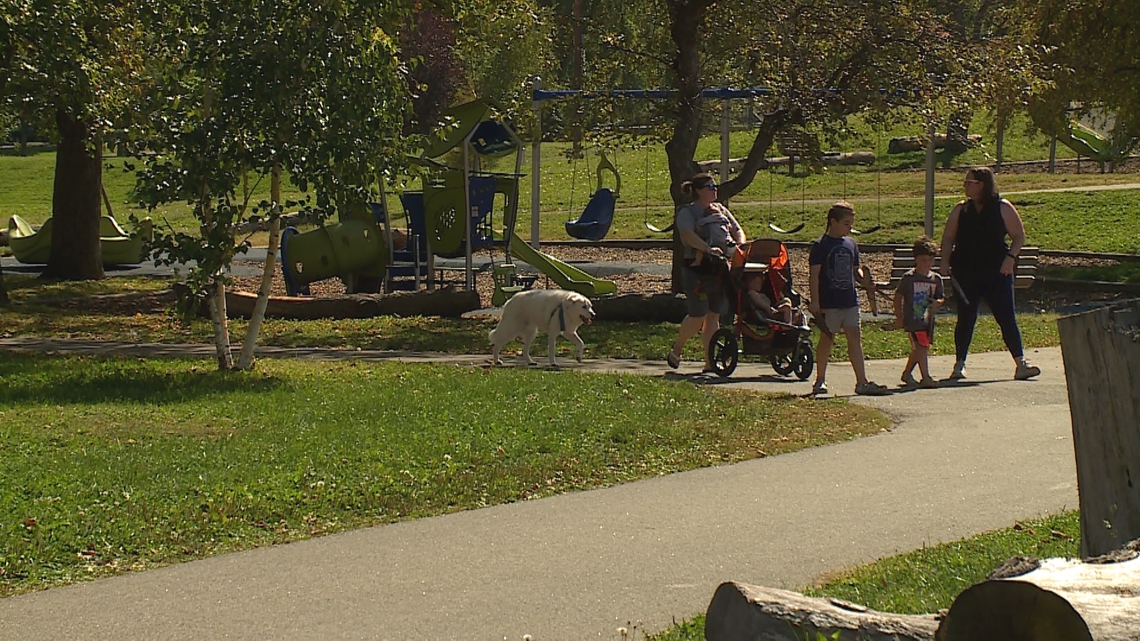The U.S. surgeon general calls parental stress an urgent public health issue that requires the nation’s immediate awareness and action.
MINNEAPOLIS, Minnesota — We all know parenting can be stressful but the U.S. surgeon general said it goes beyond that.
U.S. Surgeon General Dr. Vivek Murthy has issued an advisory on parental stress, calling attention to an “urgent public health issue.” Murthy said. “advisories are reserved for significant public health challenges that require the nation’s immediate awareness and action.”
Dr. Murthy said there are many factors affecting parents today. Beyond the traditional challenges, he mentions “there are new stressors that previous generations didn’t have to consider. These include the complexity of managing social media, parents’ concerns about the youth mental health crisis, and an epidemic of loneliness that disproportionately affects young people and parents, just to name a few.”
Meghan Tompkins of Golden Valley is a mom to three — ages 5, 3 and 11 months.
“My husband and I were just talking about it the other day, actually… deciding if we want to have another kid or not. We’re almost at this point, even with a 5-year-old and a 3-year-old and just their kind of basic activities… there’s kind of an expectation to put your kids in all these things and try everything and you want them to. But then we also feel like we’re kind of capped out almost,” Tompkins said.
According to the surgeon general’s advisory, 41% of parents say most days they are so stressed they cannot function.
“I try to talk to my mom about it and tell her that it’s different, that it is more stressful and the stresses are different, and she doesn’t really understand it,” said Emma Skala of Minneapolis.
Skala’s kids are ages 7 and 4. Skala homeschools her boys, citing school shootings as one of the main reasons behind her decision.
According to the report, school shootings or the possibility of one are a significant source of stress for nearly 75% of parents.
“I can’t fathom putting a small child through an active shooter drill. I just, it breaks my heart every time I hear about it. I cry every time I hear about any kind of school shooting that happens. That’s I think one of the main things is the safety of our children,” Skala.
The advisory also mentions nearly 70% of parents say parenting is now more difficult than it was 20 years ago, with children’s use of technology and social media as the top two cited reasons.
“I let my 3.5-year-old scroll YouTube and I’m nervous about that. Should I really be letting him do that? How much control do I have on that? And you know that we need to limit screen time, and yet that’s an easy go-to when I’m trying to make dinner… I’m trying to do my part-time job from home,” said Kristi Thao, who also has a 3-month-old baby.
Thao also mentioned how social media and access to so much advice can put more pressure on parents.
“Then we try all these different things but it’s like, then there’s so many options. I think having too many options can also make things more stressful. There’s too many choices,” Thao said.
The advisory acknowledges an “intensifying culture of comparison—often propagated by influencers and online trends—with unrealistic expectations around the milestones, parenting strategies, achievements and status symbols that kids and parents must pursue. Chasing these unreasonable expectations has left many families feeling exhausted, burned out, and perpetually behind.”
Lena K. Gardner became a mom three months before the pandemic.
“In my personal journey, I am a single mom by choice,” Gardner said. “And I thought I could do that because I have a big support network but COVID took that all away.”
The advisory states, “This high level of stress among parents preceded the COVID-19 pandemic, and the pandemic notably contributed to additional stressors on parents and caregivers.”
During the pandemic, Gardner isolated with her daughter. At the same time, her daughter would only sleep for 1.5 hours at a time before waking up.
“I became so sleep-deprived, I started having hallucinations. I called my therapist and I was like, ‘That’s it. Motherhood has broken me.’ And she said, ‘No it hasn’t. This is the first sign of extreme sleep deprivation.’ And she’s like, ‘You need help,'” Gardner recalled.
Once her daughter was in daycare, Gardner said she had to navigate daycare closures or exclusions during the pandemic.
“It still happens. Your kid gets COVID. They’re excluded for how many days and you’re left to bear the brunt of it,” said Gardner, whose parents have both passed away.
The report said social isolation and lack of social support can lead to heightened stress. On top of that, parents, on average, are working more than before.
“Most people are required to be at their jobs from something like 9 a.m. to 5 p.m. But schooling is from like 7 a.m. to 3 p.m., and it just doesn’t make logistical sense,” Gardner said.
She went on to say, “There are a lot of solutions and it baffles me why we’re not doing them more.”
Dr. Murthy mentioned the need for a cultural shift that recognizes the importance of raising children.
At the same time, he also pointed to the need for policy changes. Among his recommendations include promoting and expanding funding for programs such as Head Start and the Healthy Start program, establishing a national paid family and medical leave program, and ensuring parents and caregivers have access to affordable and high-quality mental health care.
The full advisory can be found, here.
link

